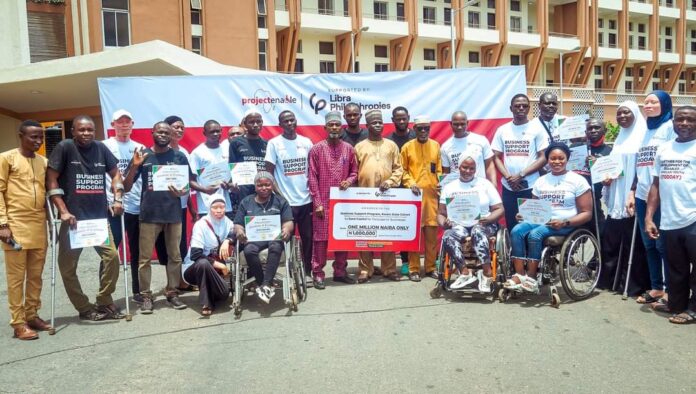International Youth Day is a momentous occasion to celebrate the contributions, energy, and potential of young people around the world. In Nigeria, a country brimming with a youthful population, this day should also serve as a reflection on the level of inclusion of all young people, particularly those with disabilities, in the affairs of youth groups and broader societal initiatives. Unfortunately, despite Nigeria’s strides in youth development, young people with disabilities (YPWDs) often face significant challenges in fully participating in the activities and decision-making processes of youth groups.
The Current State of Inclusion
Nigeria is home to over 25 million people with disabilities, many of whom are young. However, the level of inclusion of these young individuals in youth groups remains alarmingly low. While some organizations and youth groups have made efforts to include YPWDs, these efforts are often superficial or tokenistic. The lack of accessibility, both in terms of physical infrastructure and communication, continues to hinder the participation of YPWDs in various youth-related activities.
For instance, many youth group meetings, events, and workshops are held in venues that are not wheelchair accessible. Additionally, the absence of sign language interpreters or materials in braille often excludes those with hearing or visual impairments. The digital divide also plays a role, as YPWDs may not have the same level of access to information and communication technologies, which are increasingly becoming the primary means of organizing and mobilizing youth activities.
Exclusion and Its Consequences
The exclusion of YPWDs from youth groups has far-reaching consequences. It not only perpetuates their marginalization but also deprives society of their unique perspectives and contributions. Youth groups are often the breeding ground for future leaders, activists, and change-makers. By excluding YPWDs, Nigeria risks losing out on the potential leadership and innovation that these young people can bring to the table.
Moreover, the exclusion of YPWDs from youth groups reinforces the stigma and discrimination they face in other areas of life. It sends a message that their voices are not valued or needed, which can lead to feelings of isolation and low self-esteem. This exclusion also contradicts Nigeria’s commitment to the United Nations Convention on the Rights of Persons with Disabilities (UNCRPD), which emphasizes the need for full and effective participation of persons with disabilities in society on an equal basis with others.
Proffering Solutions
To address these challenges and promote the inclusion of YPWDs in youth groups, several steps must be taken:
- Enhancing Accessibility: Youth groups must ensure that their activities, events, and meetings are physically accessible to all. This includes choosing venues with ramps, elevators, and accessible restrooms. Additionally, providing sign language interpreters, materials in braille, and accessible digital content is crucial.
- Awareness and Sensitization: Youth groups should engage in awareness campaigns to educate their members about the importance of including YPWDs. Sensitization workshops can help break down stereotypes and foster a more inclusive mindset among non-disabled youth.
- Capacity Building: YPWDs should be provided with the necessary tools, training, and support to participate actively in youth groups. This includes leadership training, mentorship programs, and access to technology that can help bridge the digital divide.
- Policy Advocacy: Youth groups should advocate for policies that promote the inclusion of YPWDs at all levels of government and society. This includes pushing for the implementation of existing disability laws and the development of new policies that address the specific needs of YPWDs.
- Inclusive Leadership: Youth groups should actively seek to include YPWDs in leadership positions within their organizations. This not only promotes inclusivity but also ensures that the voices of YPWDs are represented in decision-making processes.
- Collaboration with Disability Organizations: Youth groups can collaborate with organizations that specialize in disability rights and inclusion. These partnerships can provide valuable resources, expertise, and networks that can enhance the inclusion of YPWDs.
- Monitoring and Evaluation: Youth groups should establish mechanisms to monitor and evaluate their progress in promoting the inclusion of YPWDs. This can involve regular assessments, feedback from YPWDs, and adjustments to strategies based on what is or isn’t working.
Conclusion
As Nigeria joins the global community in celebrating International Youth Day, it is imperative to reflect on the progress made and the gaps that remain in the inclusion of young people with disabilities in youth groups. Inclusion is not just a moral imperative; it is a necessity for the development and success of Nigeria’s youth. By taking deliberate steps to include YPWDs, youth groups in Nigeria can lead the way in creating a more inclusive, equitable, and prosperous future for all young people.
International Youth Day is celebrated every year on August 12. It is an exceptional event dedicated to recognizing the potential, accomplishments and contributions of young people worldwide.


